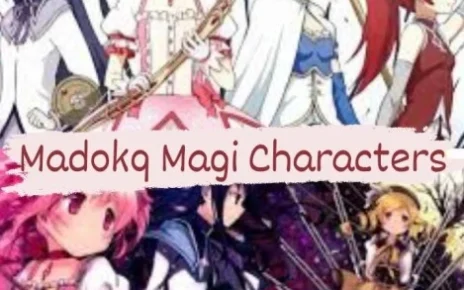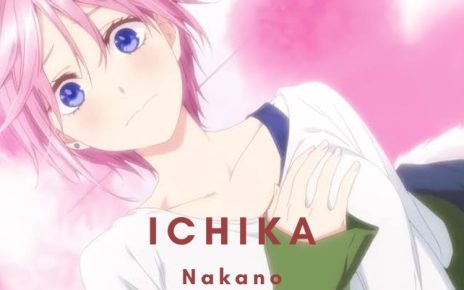
Each once in an extraordinary while, you go over an anime that totally adjusts your view of what comprises a incredible series. For this commentator, that anime was Higurashi no Naku Koro Ni, or the limited When They Cry, a series dependent on the seventh Expansion games delivered in Japan.
A develop show saturated with secret, Higurashi recounts the tale of a gathering of companions living in Hinamizawa, a country town held hostage by a merciless, ridiculous heritage. For as long as four years, the evening of Watanagashi, the Cotton Drifting celebration, a series of strange passing’s has happened. For each situation, one individual is fiercely killed and one vanishes suddenly and completely. These chronic killings have been credited to the fierceness of Hinamizawa’s benefactor God and got known as Oyashiro-sama’s revile. The account of Higurashi happens during the hour of the fifth Watanagashi since these occasions started.
This is the place where Higurashi changes pace from conventional narrating. The principal season is made out of a series of story arcs, every one of which serves to bring up issues about the importance behind the killings, hypothesizes expected certainties, and continues to dismantle the cast in an inflexible series of disastrous occasions and free fierceness. These arcs regularly start with a short vision of the revulsions to precede getting back to the vivid, upbeat depiction of our heroes’ sparkling days in Hinamizawa, leaving us to think about how things will arrive at the frightening scene we just saw. When an arc has finished, everything resets to a more joyful point throughout everyday life and we watch as another story of misfortune and neurosis unfurls.
In spite of the apparently detached nature of the arcs, they are all important for a more prominent entirety. While the situations develop in fundamentally various forms each time, there are sure key components, for example, the past up until that point, which continues as before. This first season is tied in with bringing up issues and laying basis, except for the “Educational” arc; a re-recounting prior occasions from an alternate point of view that uncovers what really occurred, while as yet bringing up new issues of its own.
All things considered, you can anticipate that this portion of Higurashi should leave many inquiries unanswered. It’s not until the peak of the subsequent season, Higurashi no Naku Koro Ni Kai, that each question will have discovered its answer.
The narratives are centered around a modest bunch of intriguing significant characters with altogether different perspectives and accounts. The cast is unshakable, containing the kid that just moved into town, the beneficiary to the most grounded family controlling the zone, the twin sister that was projected away, the youthful priestess with a second character that predicts the future, the little girl of a family torn separated by Oyashiro-sama’s revile, and the young lady that has endure it once previously. While there is moderately minimal in the method of a supporting cast, contingent upon which of the individual heroes the current arc is following, the others will in general turn into the help.
While the center cast incorporates just a solitary male character, it really functions admirably. There are no endeavors to play the series up as a group of neither concubine’s anime, nor are there any of the adolescent underwear shots or distorted humor you regularly find in a one-kid a few young ladies cast. Albeit the series is schizophrenically determined by boundaries of light and dull, Higurashi effectively holds its develop demeanor in any event, when at its generally cheerful.
On the other hand excited and cool, the soundtrack serves to feature the limits of the series. The sound improves the temperament extraordinarily well, making a chilling climate during frightful scenes or imparting a feeling of distrustfulness during a generally innocuous second. The series sports one of the slickest, most frequenting sets of introduction credits I’ve seen to date, both outwardly and aurally.
Notwithstanding my recognition, Higurashi isn’t without its deficiencies. Words can’t depict the barbarity of the naming, which feels less like a name and more like a clumsy endeavor at a character-butchering rework. I can’t suggest watching it captioned emphatically enough. The workmanship quality is additionally lopsided on occasion; however it generally appears to arrange when it truly tallies.
This commentator has seen the full two seasons and, after watching the principal season again with full information, I am paralyzed at how thoroughly examined the composing is. No words or activities are squandered. There are innumerable signs and pointers all through the series, a significant number of which are effortlessly misconstrued or totally ignored during that first survey.
Primary concern: It’s an uncommonly elegantly composed secret series about suspicion, loathsomeness and misery, all enclosed together by a peculiar polarity of light and dull components. Shockingly, it requires the subsequent season to respond to a significant number of the inquiries you’ll be left with.
Proposal: If you can stomach the mercilessness, you’d do yourself a damage not to watch this series and attempt to figure out the entirety of the concealed realities. Whenever you’ve made yourself insane, appeal to God for a North American arrival of Higurashi no Naku Koro Ni Kai or learn Japanese. Presently.



